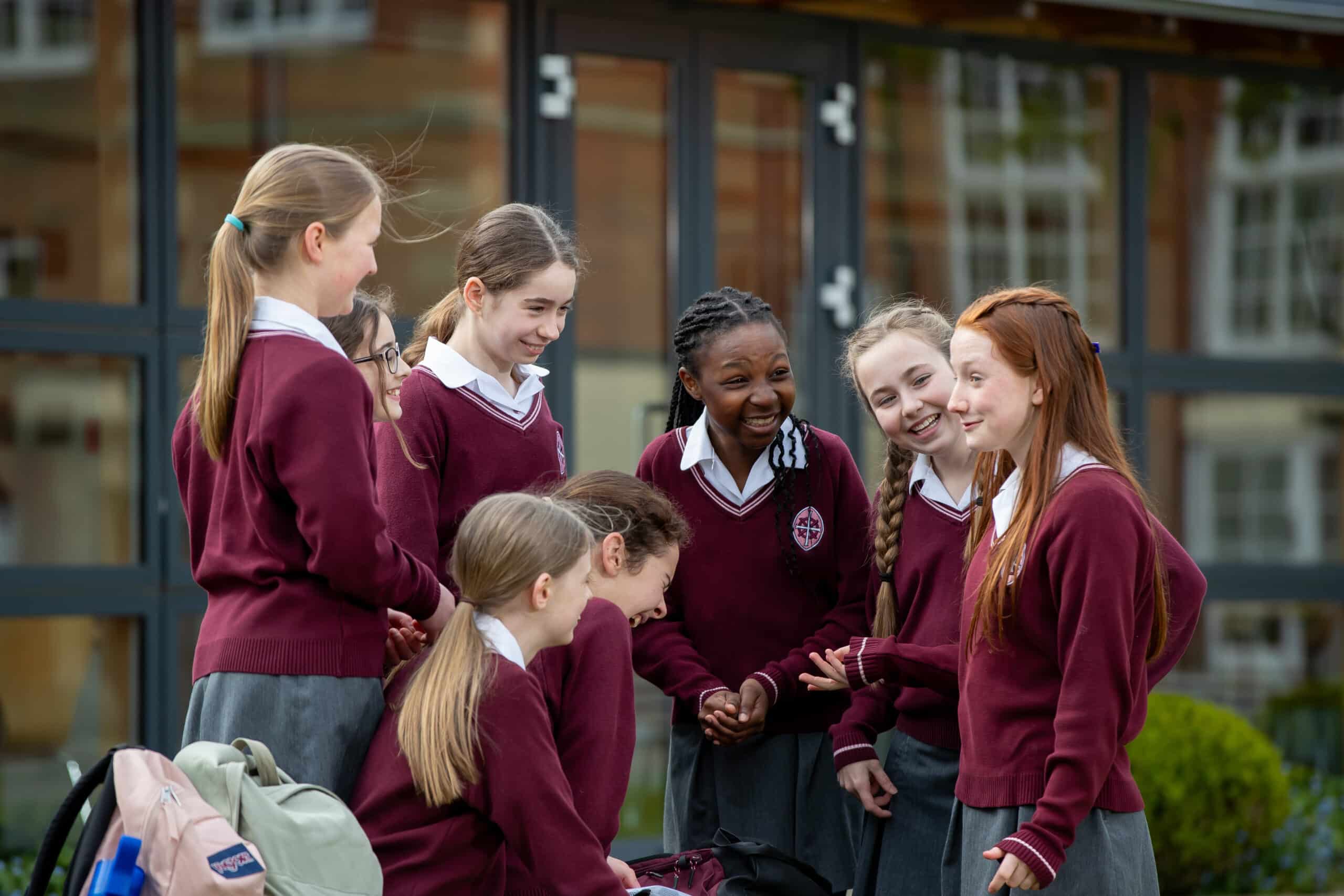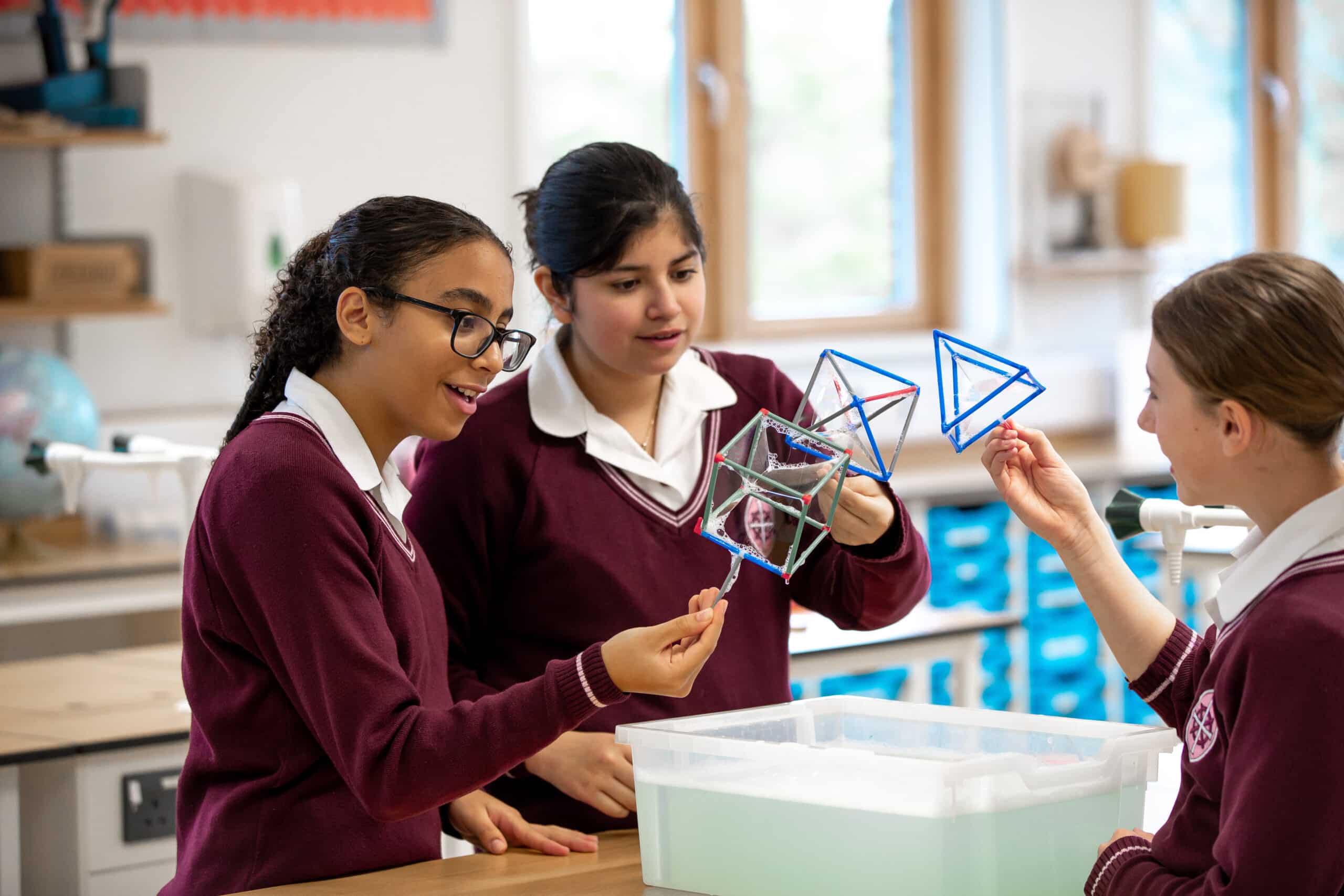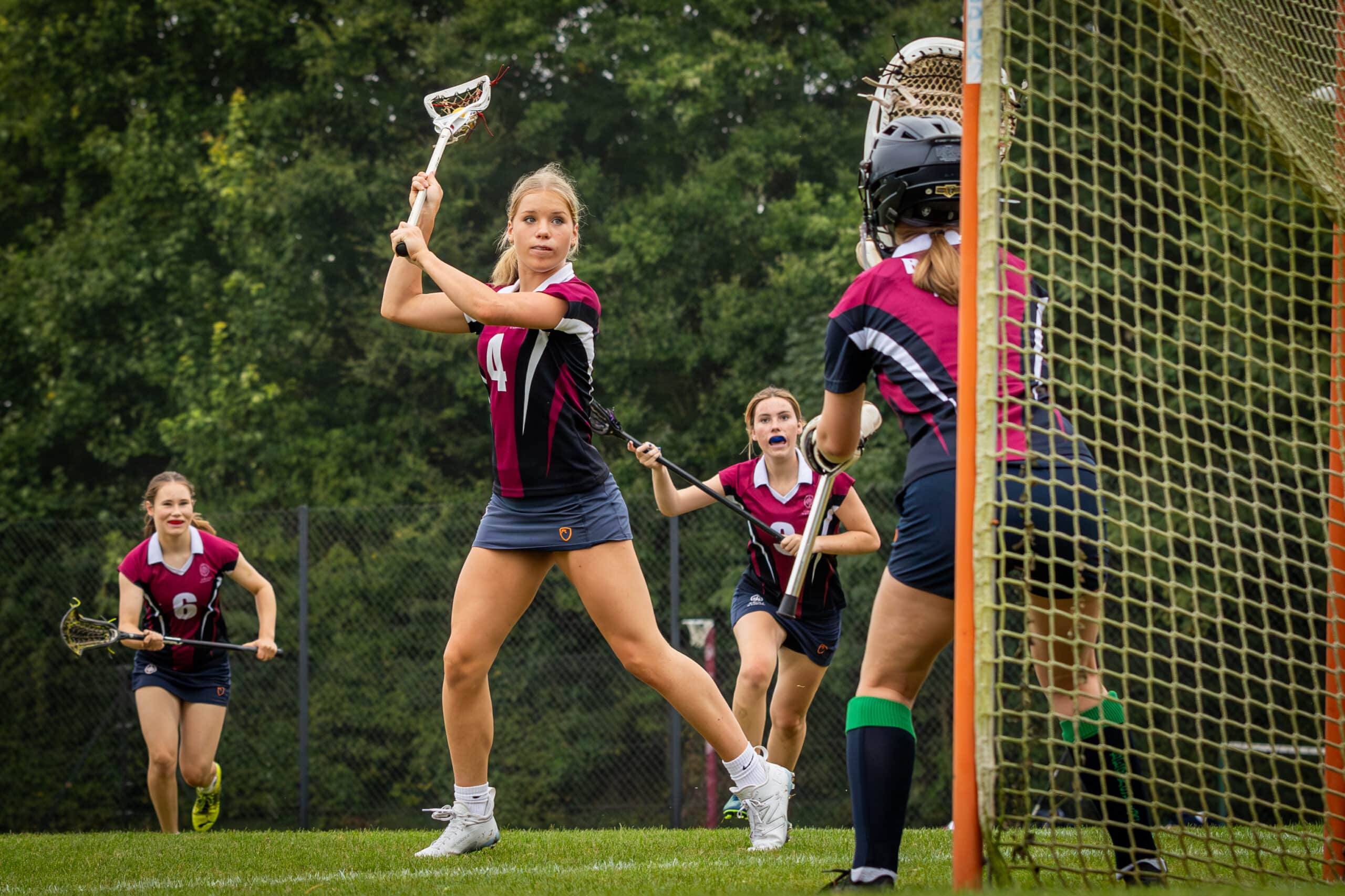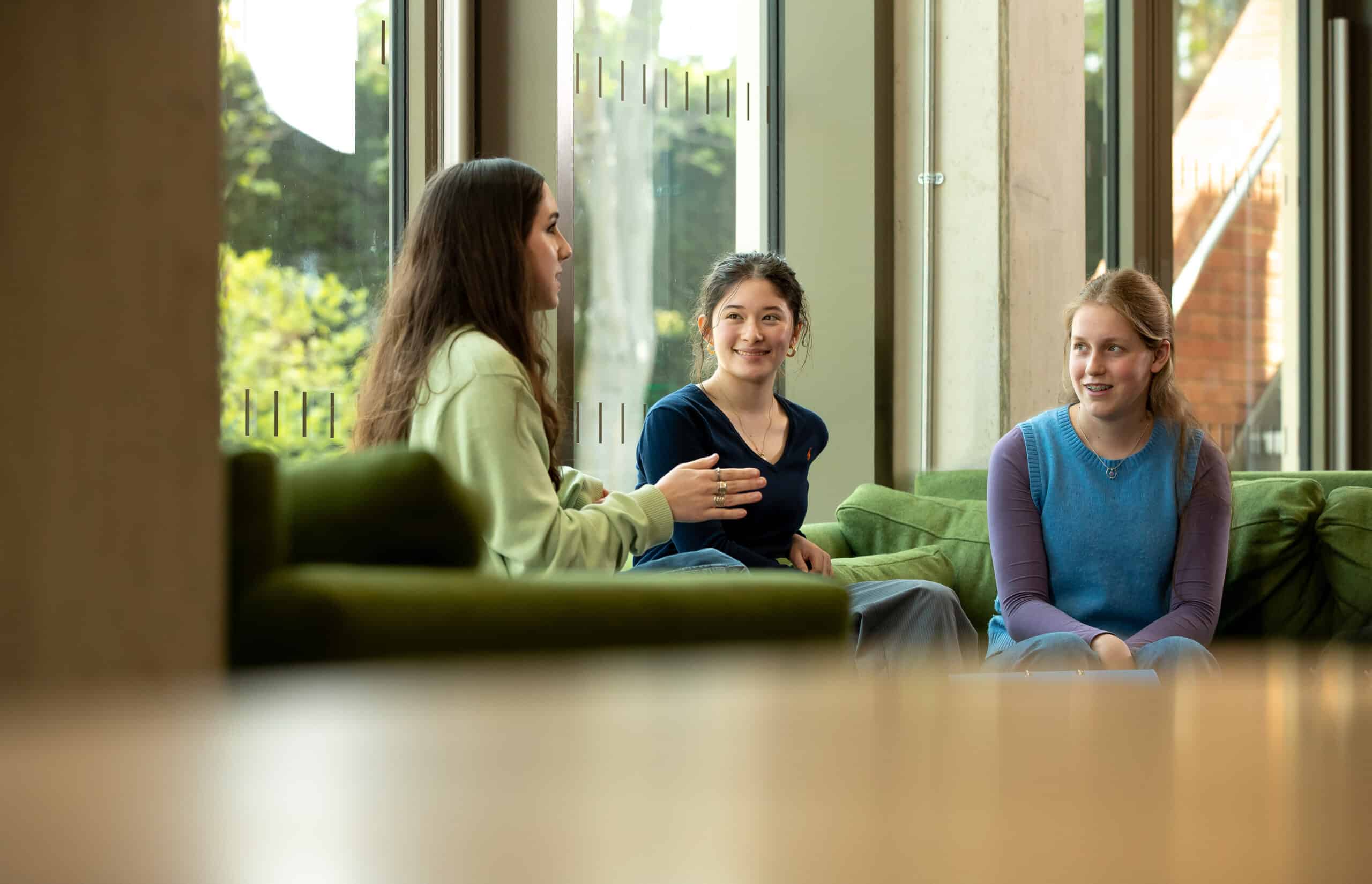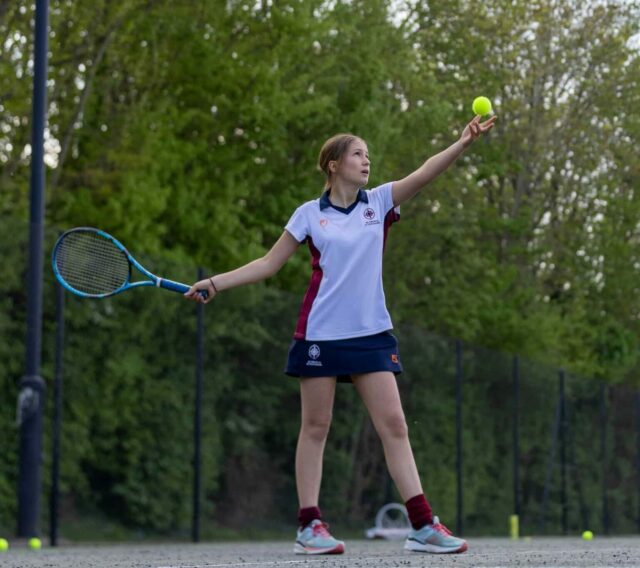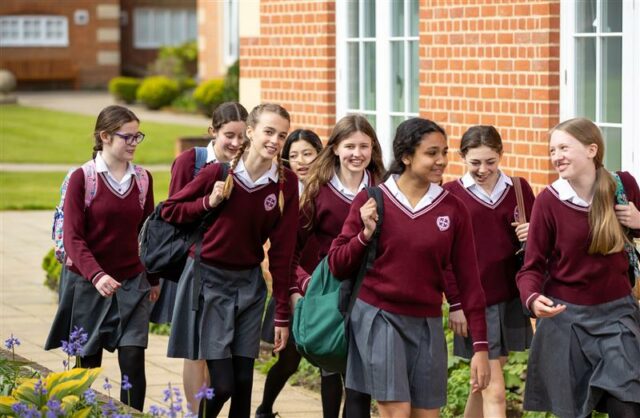Defining our academic ethos
It’s one thing to complete the task of collectively writing a statement of academic values, it’s quite another to make it meaningful. It is the latter that has been occupying my thoughts and underpinning work we have been doing on planned revisions to the way in which we report to you on your daughter’s progress.
Communication between home and school is something we all value, and it’s vital to give you a clear indication of how your daughters are progressing in their academic journey. So, we have been looking at how to do that better: how to ensure that the way we report highlights the things that we value and provides a sense of what is going well in addition to what needs further development.
To that end, we have grasped the thorny nettle of reporting on ‘effort’. It’s a bit of a bane for teachers, because it isn’t as transparent as you might think; does a somewhat blank page in a maths book indicate no ‘effort’, or 40 minutes of valuable hard fathoming to little avail? The word ‘effort’ tries to act as a catch-all for a whole load of attitudes, dispositions and behaviours which don’t necessarily sit easily together.
So, instead, we are, going to report on Attitude to Learning and Study Habits. The former is, perhaps, a little oblique but we are looking to try to provide a sense of the students’ engagement: their response to challenges and setbacks; their willingness to ‘give it a go’; and their curiosity and desire to extend their learning further. This is at the very heart of our ethos.
Study Habits, by contrast, appear less exciting, easier to measure and equally, very important. They are the stuff of deadlines, homework completion and effective personal organisation.
In making this change, we are moving to a four-point scale, rather than five – drawing on well-known survey studies which speak to the move to the middle with odd-numbered response choices. We will also be using an extended Red/Amber/Green scale and adding a top tier, for the exceptional; whether that ends up bright green or some kind of imperial purple remains to be decided! The principle, however, remains that we should provide some space to recognise the outstanding without making it an unhealthy obsession. After all, we are a school where ‘success is celebrated but not revered’.
I’d be interested to know how parents feel about this as it is implemented – it’s intended to be an evolution and improvement of how and what we communicate home. It is the product of a lot of talking and thinking as well as a real commitment to articulate those things that we hold dear as pivotal to the progress and academic success of our students. It is also a system that maps into our pastoral concerns about unhealthy fixations with so-called perfect scores and competition with others.
AI – not sure I am that bewildered, to be honest
Even though the esteemed Sir Anthony Seldon suggests school leaders might be by the implications of AI – or so his letter to The Times would have us believe. This letter was one of the outcomes of a recent conference on AI that James Smart, one of my many technically savvy colleagues attended, albeit his recollection of the content, discussion and conclusions of the day seem different from Sir Anthony’s.
In another article, Sir Anthony was equally keen to espouse the benefits of this mystifying technology, but only in the most general of terms – as a means of personalising education for all students. So, it’s apparently a panacea too, albeit a puzzling (and potentially very expensive) one.
Certainly, AI is going to change what we do. It’s a useful tool, for sure, in providing students with effective working summaries of research sources to inform whether it is worth them turning the pages; it’s going to get them started on how to respond to certain questions and research certain ideas. But it’s not a replacement for the process of learning, understanding and assimilating the core content from a knowledge-rich curriculum.
Open AI tools, such as Chat GPT, currently need feeding with prompts from an intelligent and knowledgeable actor to produce developed and accurate responses; it needs proofing by someone who can tell right from wrong and then polishing and refining to produce sophisticated outcomes.
An experiment by a member of staff at St Helen’s quickly exposed inaccuracies in the machine response, although it was very polite in its apologies for its mistakes!
A moment of digging under the hood of more specific tools, such as Century Learning, reveal that, as Sir Anthony asserts, there is adaptive testing and flexible delivery which could be beneficial. However, it is all driven by a team of specialist former teachers producing and providing content, still in the cause of inculcating knowledge of a rich curriculum.
I am also left with questions about whether adaptive, AI testing actually provides too much academic safety. Yes, the data will identify the next incremental step, but where is the bolder, riskier challenge of presenting something genuinely hard and then helping students to unpack it? Where is the AI routine that is going to suggest that Year 7 students try to explore the implications of an entry from the Domesday Book, or start evaluating a range of perspectives in nineteenth-century sonnets?
If education isn’t about challenging students, what are we doing?
Challenge of one kind or another – feminist philosophy in Year 9
So, challenge might be about academic difficulty, but it can also be about dealing with problematic and/or complex topics that can make us feel initially uncomfortable as well as intellectually stretched. I am pleased to say that this is a nettle we want to continue to grasp, guiding students through deliberate difficulty in a way that prepares them for life.
Year 9 students are about to start studying feminist philosophy in a re-work to their Religion, Philosophy and Ethics (RPE) curriculum – and I am delighted. Mrs Meuleman, our returning Head of RPE writes:
‘Over the next few weeks, students in Year 9 will study feminist philosophy. The topic includes a history of feminism – the wave model, the essentialism debate and the concept of intersectionality. Student will read extracts of philosophical texts, discuss the concepts being put forward and reflect on their importance for feminist theory and practice. Although students will not be asked to align themselves with any of these theories, lessons might challenge their own views.’
I hope very much that those of you with daughters in Year 9 will be hearing about this across the dinner table, or if not, prompting a discussion. I hope they will be provoked by some of the perspectives presented for academic analysis, and I hope you will support us in unpicking this as academically engaged actors keen to broaden your daughters’ intellectual perspectives.
Suffice to say, this will be strongly guided by staff and is explicitly an exploration of academic perspectives and justifications, rather than just personal responses of: what do you think about X?
A little more on the joy of podcasts
I am afraid I have been defeated by the prospect of creating a St Helen’s podcast list to share, at least in the immediate future, as departments have shared a wide range of content, but across an equally wide range of platforms. Nonetheless, here is an updated set of recommendations, including my own for Empire, hosted by William Dalrymple and Anita Anand.
Art
Classics
Economics
English
- Things Fell Apart, by Jon Ronson (although really sociology) – to be read with his book So You’ve Been Publicly Shamed
- The Long History of Argument, by Rory Stewart
- Pride or Prejudice: How we Read Now, by Abigail Williams (BBC Radio 4)
French
Geography
History
- The Rest is History
- You’re Dead to Me
- Crash Course History – sorry, a YouTube channel, not a podcast
Music
Philosophy
- Philosophy bites – short interviews with philosophers
- A history of philosophy without any gaps – it’s been going since 2010 and it’s only on the 1500s! It is also global philosophy, not just Western
- Panpsycast – originally aimed at students and A level curriculum, but now has a lot of topics
- Let’s Talk Religion
Sciences
Everything


